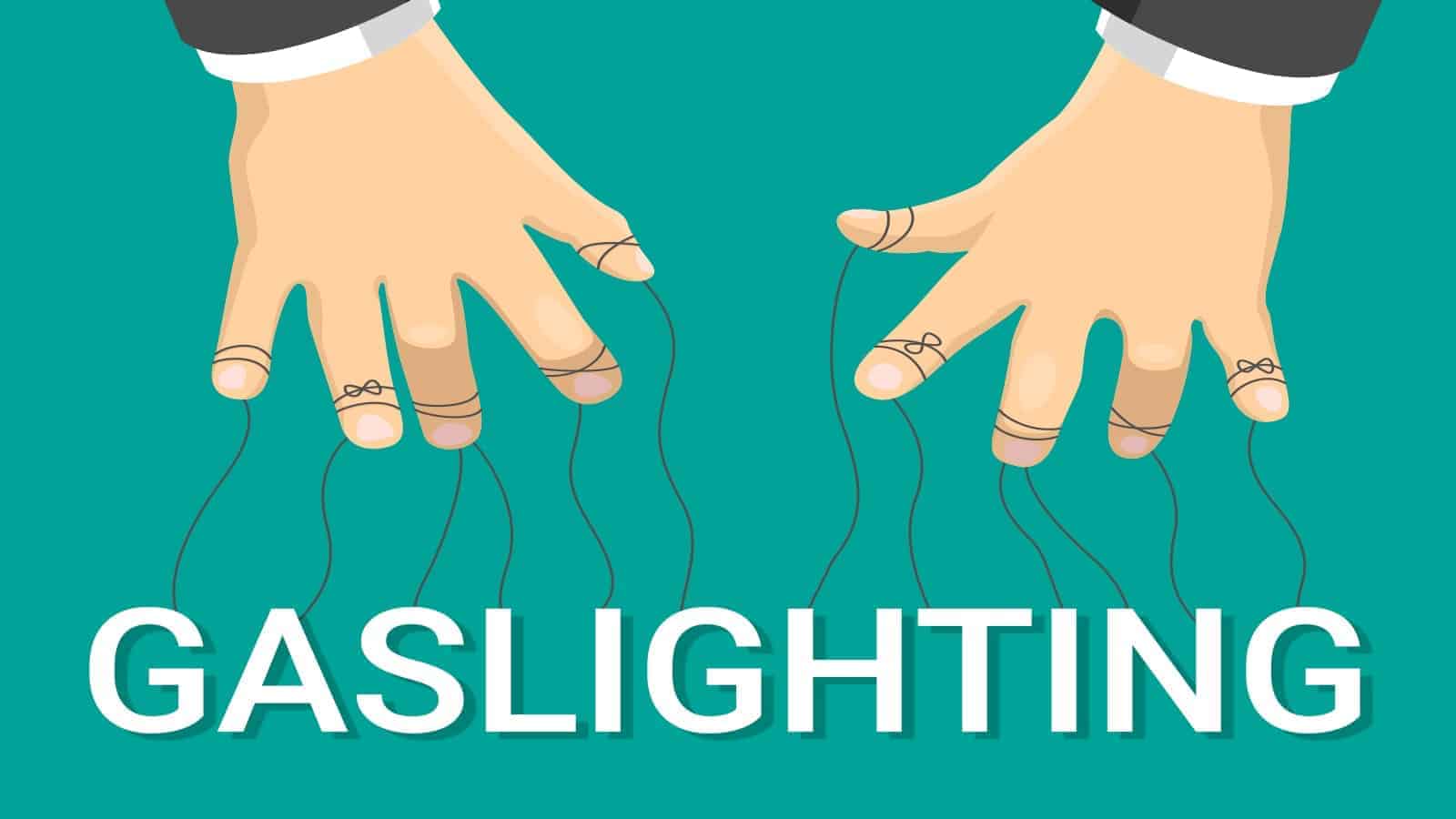It can be very disorienting to feel like you have done something, but you haven’t. It’s also disorienting to be someone who tries to be a nice person, but is constantly accused of being disingenuous. Have you experienced either of these feelings as a result of another person’s actions? If so, it’s possible that someone is gaslighting you.
Gaslighting Takes Its Name From a Classic Film
Though many people have been introduced to the term gaslighting recently, it’s important to understand exactly where it came from. The term has a long and varied history in the public eye, but it mainly takes its name from the 1944 film Gaslight, in which a woman (Paula, portrayed by Ingrid Bergman) is psychologically manipulated by her husband to feel like she is insane when in reality she is perfectly fine.
Despite the fact that her mental state is perfectly fine, she still believes that she is going mad. As a result, her intense discomfort produces legitimate feelings of madness.
It’s important to note that Paula eventually gets out of the relationship after realizing what is happening to her and learns to deal with manipulation. But the situation set a useful precedent for talking about psychological manipulation as it happens in society. Because of this, the term “gaslighting” reference’s the movie’s title as a way of describing the specific method of manipulation.
It might seem easy to understand manipulation as something that simply happened in a movie. But it can occur quite frequently in society. The most damaging thing about the practice is that many people who suffer from it don’t realize it. Instead, they mistake their confusion for legitimate feelings against themselves, leading to lowered self-worth and possible situations that make it more difficult to deal with gaslighting, such as Paula’s position in the aforementioned film.
The Manipulation of Gaslighting Can Be Hard to See
This is why manipulation is important to understand and fight against when you notice that it is happening to you or somebody you know. More often than not, gaslighting occurs between two individuals who trust each other. One person subtly starts to manipulate the other. Because it occurs often within intimate interpersonal relationships, the intention can be incredibly difficult to spot.
Like with many other conditions, failing to notice manipulation early on can result in the condition getting worse, the victim becoming even more unaware, and potentially more damage in the long run.
To prepare yourself to deal with gaslighting before it’s too late, it’s essential to familiarize yourself with its symptoms. This is why we’re here to help—in this article, we’ll be taking a look at 10 Warning Signs of Gaslighting to Never Ignore.
Before we get into this article, we want to say that if you think that you might be experiencing symptoms of manipulation, it is important to get professional help from a psychologist or therapist. Medical professionals are the people who truly understand manipulation and how to deal with gaslighting, so please be careful and get help if you notice any of these 10 symptoms happening in your life.
Ten Signs of Gaslighting Never to Ignore
#10. It’s Not All Negative
It’s easy to think that abuse and emotional manipulation is simply constant negativity and nothing else. However, abusers often mix in positive comments and what looks like love to make a victim believe that they actually do care about them. This type of hot/cold treatment is a cornerstone symptom of abuse.
Regardless of how it happens, it’s worth noting that positivity does not negate emotionally manipulative behavior and cannot be justified as love no matter how brief the negative behavior was.
#9. They Project Their Emotions
Many abusers often project their own problems onto their victims. For instance, if an abuser is having trouble managing money, they might criticize their partner’s financial situation more harshly than their own. They use this as a way of getting their partner to doubt their sense of reality.
#8. Confusion is Their Priority
Many abusers will start to gaslight victims by making them feel as though they are perpetually confused. It’s important to see these symptoms as they occur so you don’t fall prey to emotional abuse.
#7. They Get Others to Doubt You
Sometimes an abuser can manipulate the relationship a victim has to others by getting them to also be complicit in manipulating the victim. This is often without the others even knowing, getting them to admit to small personality traits and then blowing it up in the face of the victim.
For example, if an abuser wants a victim to think that they over-exaggerate everything, they might get a close mutual friend to admit that the victim blew one situation out of proportion. After this, they’ll present the findings to the victim in order to make them think they do blow things out of proportion.
#6. They Target Friends
A lot of the time, many people who are victims of gaslighting don’t realize it. That’s because they don’t have much contact with others who might be able to see the symptoms. This is often because the abuser makes the victim feel like they can’t trust their friends. As a result, they do not socialize as much as they once did.
This can also be done by making their friends seem inauthentic or like liars themselves. In turn, they cause the victim to believe the abuser and willingly limit their contact.
#5. Using Their Emotions
It’s no secret that being in a relationship involves both partners being able to listen to the other’s needs. However, abusers will often manipulate this relationship dynamic to make the other person do things they don’t want to do without evidence. Similar to what was previously mentioned regarding targeting friends and making the victim feel uncomfortable around those they used to socialize with, abusers can also cite their own personal feelings without providing evidence for something.
For example, if an abuser refuses to let their partner go see a friend on the basis that they hate them (or other aggressively negative feelings) without having any actual anecdotal evidence, that can be a form of gaslighting.
#4. Lying as a Precedent
When people lie, sometimes we have to think a bit to actually see through it clearly. This is why when somebody lies so blatantly, we take notice. Abusers manipulating victims will often take advantage of this dynamic, spewing blatant lies as a means of setting up a precedent.
By lying so directly, they will make the victim assume that everything they say from that point onward is a lie, something that makes manipulation a normal routine.
#3. Denying the Victim Agency
When we think of abusive behavior in relationships, we typically assume that it is something drastic. Indeed, we think of an abuser literally locking somebody into their apartment so they can’t go outside. However, there are more subtle ways this can occur through manipulation. Often the victim fails to even notice it. At worst, they sometimes unwittingly comply.
For example, if you’re in a relationship with somebody who continually questions your ability to not flirt with others while alone, they might be able to pressure you into feeling guilty for going outside or feeling that you can’t socialize without them by your side.
#2. Repetitive Nature of Symptoms
Many people falsely assume that they will be able to spot manipulation as soon as it begins happening, allowing them to quickly put a stop to the behavior. However, this couldn’t be further from the truth. In fact, gaslighting typically occurs over long periods of time. The abuser slowly introduces more and more tactics into the victim’s everyday life until it has gotten too far to recognize it cleanly.
This is why it’s important to not take certain denials of agency lightly. If somebody is doing a similar action to deny your agency multiple times over, it could be an effect of how manipulation is now entering your relationship.
#1. Deny Something They Said
One of the most distressing symptoms of gaslighting is that the abuser might directly deny something they surely said previously. This is especially insidious as it pushes the victim to start to question their sense of reality.
When somebody says something didn’t happen that surely did happen, what does that mean for the rest of reality? Is it possible to even have an objective sense of reality when someone is lying so blatantly? This is why manipulation is such a harmful form of manipulation. Indeed, it can really get into somebody’s head and make them begin to question their entire life.
A way to prevent this can be to create an objective proof of certain conversations so when they’re brought up again, you’re able to be sure that the abuser is definitely manipulating you.
Final Thoughts on Gaslighting
Gaslighting is an incredibly harmful form of emotional manipulation that is important to be aware of. By learning how to deal with gaslighting effectively, you can see the symptoms before it’s too late.
If you’ve noticed that you or somebody you know is experiencing symptoms of gaslighting, read the tips in this article and understand that speaking with a medical professional is the best way to deal with gaslighting!

















